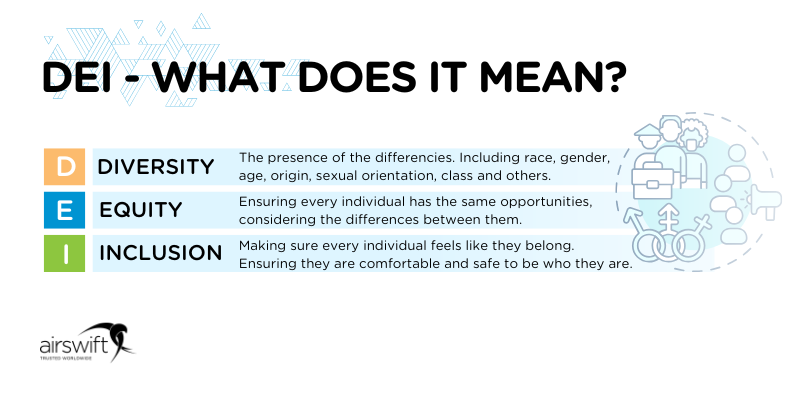
By
Renan Mendes
January 20, 2025
Updated
January 24, 2025
The business world is rapidly evolving
This means that it's crucial for companies to keep up with recruitment trends. What worked well a few years ago may no longer be effective, highlighting the importance of companies staying ahead of the curve.
And the key trends we see now may quickly become obsolete.
So, what should businesses be aware of when planning their recruitment strategy for 2025?
Here are eight hiring trends to keep an eye on this year.
1. The gig economy is here to stay
By 2028, over 90 million people in the US alone are expected to work as freelancers or on short-term contracts.
The gig economy is growing rapidly, and companies are adapting their recruitment strategies to attract this dynamic workforce. More professionals are choosing freelance and contract work over permanent roles, valuing flexibility, autonomy, and the chance to focus on life beyond the traditional 9-5. Many freelancers even prioritise remote opportunities when considering job offers.
But tapping into the gig economy isn’t without its challenges. Recruiters often grapple with finding qualified candidates, managing relationships, and tracking performance—key factors for success in this space. Some organisations also struggle to streamline recruiting strategies or measure project progress effectively.
Businesses that embrace these labour trends can unlock significant advantages: accessing a wider talent pool, improving operational agility, and building meaningful, long-term partnerships with top-tier professionals.
By aligning recruitment strategies with the gig economy’s unique dynamics, organisations can set themselves up for success in this evolving workforce landscape.
2. Right-skilling and corporate training

Companies are turning to strategic training initiatives, equipping employees with the skills their organisation needs to thrive.
As technology transforms industries, recruiting trends are shifting toward skills-based hiring. Employers are no longer just seeking passionate candidates—they're prioritising individuals with specialised expertise.
Many organisations recognise that upskilling existing employees not only ensures the workforce is prepared for future challenges but also strengthens employee engagement and loyalty.
By embracing right-skilling and focusing on professional development, organisations can build a resilient workforce while fostering a culture of trust and innovation.
3. The war for talent
As talent pools shrink, competition to attract and retain top talent will increase.
Talent acquisition trends in recent years have highlighted a talent shortage, leading companies to face increasingly strong competition for top talent.
This has caused businesses to get creative in attracting and retaining the best staff. Recruitment efforts have shifted from solely focusing on short-term success to emphasising long-term career development and satisfaction.
Incentives such as competitive salaries, mental health care, flexible work, generous vacation policies and access to advanced technologies are now commonplace among modern offices.
The war for talent is intensifying day by day, and it’s essential that organisations continue evolving to ensure they remain attractive employers of choice, especially for critical roles.
4. The importance of company culture
With so many choices available to job seekers, company culture will be a key factor in determining where people want to work.
In today’s job market, the employee experience isn’t just about attracting top talent—it’s also critical for retaining it. A company’s values, work environment, and day-to-day practices can be the deciding factors in whether employees stay for the long term or seek opportunities elsewhere.
Building a strong company culture that employees are proud to be part of requires intentional effort across several key areas, including:
- Setting clear expectations to provide direction and purpose.
- Creating growth opportunities to help employees advance their careers.
- Recognising talent and hard work to make employees feel valued.
- Encouraging team-building to foster collaboration and connection.
- Promoting diversity and inclusion to ensure everyone feels respected and supported.
- Offering flexibility and building trust to create a positive and adaptable workplace.
- Providing safe channels for addressing concerns or complaints about inappropriate behaviour, whether from colleagues or leadership.
By investing in these aspects, companies can build an environment that not only keeps current employees engaged but also becomes a magnet for top-tier talent.
5. The power of social media
Platforms like LinkedIn and Glassdoor offer candidates insights into employers and can impact a company’s reputation.
Social media platforms are seeing a growing number of creators spotlighting company culture. And one viral video can significantly shape public perception and leave a lasting impression on a company’s reputation.
Platforms like LinkedIn and Glassdoor will continue to play a pivotal role in shaping how job seekers evaluate potential employers. These tools give candidates unparalleled insights into company culture, achievements, and challenges, often through firsthand accounts from employees past and present. This level of transparency significantly influences where candidates choose to apply or accept offers.
However, reputation management is a two-way street. Organisations must recognise that their online presence is more than just a marketing tool—it reflects their values and workplace environment. A strong digital image can attract top talent, while neglecting it can drive potential hires away.
To stay competitive in the evolving job market, businesses must prioritise their reputation. Authentic storytelling about company culture, celebrating achievements, and addressing issues openly can set organisations apart and resonate with the modern workforce.
6. AI will be used to enhance the candidate experience
According to research by Korn Ferry, 67% of survey respondents see increased AI usage as a top talent acquisition trend for 2025.
In the best organisations, employers will leverage AI not just to streamline hiring processes but to create a more personalised and engaging candidate experience.
This includes using AI-driven tools to provide tailored job recommendations, answer candidate queries in real-time, and deliver feedback at every stage of the application process by analysing data on candidate preferences and behaviours.
AI can help employers craft more effective communication, from job postings to interview scheduling, ensuring the process feels seamless and responsive.
Ultimately, the goal is to use AI as a tool for connection—not just efficiency—by making candidates feel valued and informed throughout their journey.
7. More diverse and inclusive workplaces

Since Millennials entered the workforce, diversity, equity, and inclusion (DEI) have become key priorities, gaining even more momentum with Gen Z. Often described as “chronically online,” Gen Z spends significant time on social media, where they openly share opinions—including critiques of their workplaces.
For this generation, DEI is non-negotiable. If a workplace lacks diversity and equity, Gen Z employees are unlikely to stay silent. In fact, a Handshake study found that half of Gen Z workers would consider leaving a job if they felt equity was lacking. For them, DEI isn’t just an added benefit—it’s a fundamental value.
Conversely, employees feel inspired and engaged when they see diverse representation and clear growth opportunities within their organisation. Companies that prioritise DEI not only attract and retain talent but also foster a culture of creativity and innovation, driving stronger business outcomes in the process.
8. Benefits are a plus, salaries are a must
Work-life balance may attract top candidates—but competitive salaries make them stay.
According to recent studies, better pay remains a top motivator for those planning to switch jobs in the next year. While factors like flexibility and a positive workplace culture still matter, salary has become a central consideration for job seekers.
For today’s workforce—especially Gen Z—transparency around compensation is critical. Job postings that omit salary details often struggle to attract interest, as candidates increasingly value clarity and fairness in their decision-making process.
In 2025’s competitive job market, workers are no longer choosing between work-life balance and a high salary—they’re expecting both. Employers that meet these dual demands will stand out and secure the talent they need to thrive.
Hire top talent with Airswift
As a leading workforce solutions provider, Airswift is uniquely positioned to support both employers and candidates in navigating today’s rapidly changing job market.
We recognise the importance of helping candidates advance their careers while ensuring companies find talent with the right skills to thrive.
Whether you’re looking to unlock new opportunities in your job search or secure top-tier hires for your business, Airswift’s workforce solutions can help. Contact us to disover how we can support your goals today.
